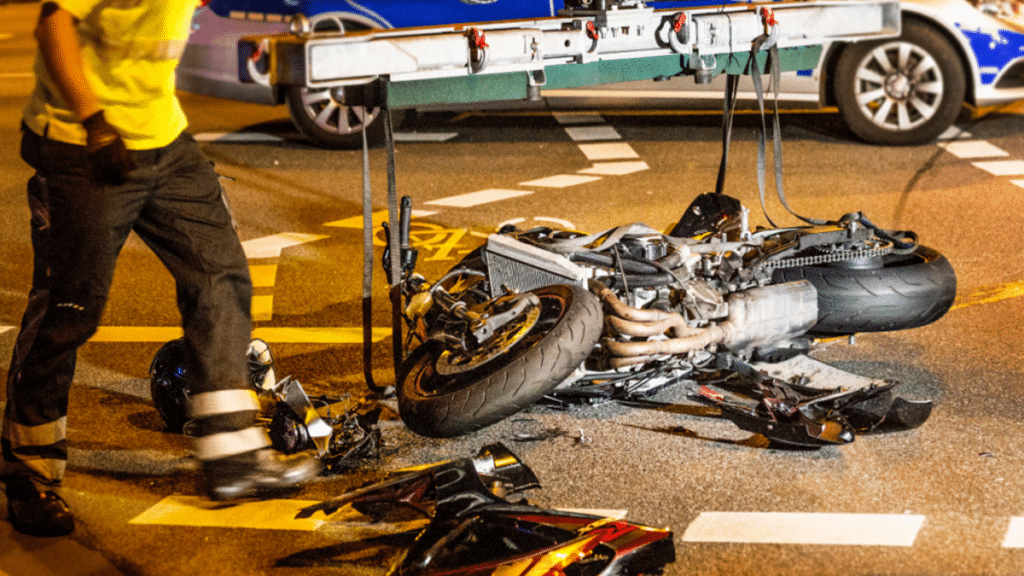A motorcycle crash can leave victims dealing with much more than scrapes and bruises. In 2023, the National Highway Traffic Safety Administration (NHTSA) recorded 6,335 motorcycle fatalities. In 2020, the injury rate for motorcyclists in accidents was higher than that of passengers in cars.
These injuries leave victims and their families dealing with high medical bills, lost income, and pain, among other consequences. Most victims do not know the types of damages they can claim. Victims can consult an experienced motorcycle accident lawyer with DFW injury lawyers, who will walk you through the damages you can recover.
Here is an overview of the typical damages available after a motorcycle crash:
Economic Damages
Economic damages are tangible losses that you can put a price tag on, including out-of-pocket expenses. These include:
Medical Losses
Medical expenses make up the largest portion. These damages cover:
- Emergency room visits
- Surgeries
- Hospital stays
- Medication
- Physical therapy
- Future medical care
Riders with long recovery times or permanent injuries will have to bear steep medical costs in the future.
Lost Income
If your injuries keep you from working, whether temporarily or permanently, you have the right to recover lost wages. In more severe cases, you may be entitled to compensation for reduced earning potential if you are unable to return to the same line of work you did before the accident.
Property Damage
This includes the costs of repairing or replacing your motorcycle or safety gear damaged in the crash. You can also include damage to personal property, like your phone. All these costs are recoverable in a personal injury claim.
Non-Economic Damages
Not all losses are financial. Non-economic damages are intangible losses that change your life but are not reflected on a receipt or paycheck. In these types of damages, you can recover compensation for the pain and suffering you have endured because of your injuries. Even though this cannot be measured in dollars, it deeply affects your day-to-day life.
You can also recover damages for emotional distress, which addresses the psychological impact of the crash. This includes anxiety, depression, or post-traumatic stress disorder (PTSD) that follows traumatic accidents.
Loss of enjoyment of life can also be claimed if your injuries prevent you from doing things you once loved, like playing with your kids or walking. In some cases, loved ones can claim loss of consortium, which refers to how your injuries have affected your relationship with your partner and family.
Punitive Damages
Although rare, you can be awarded punitive damages when the at-fault driver’s behavior was reckless. To recover punitive damages, there are things you must prove, such as:
- Wanton conduct is where the defendant consciously disregarded other people’s safety.
- The at-fault party acted with malicious intent.
- The punitive damages will deter similar behavior in the future.
The purpose of punitive damages is to punish the at-fault party and send a message.
Conclusion
Several things determine the damages you can recover and how much you can receive. Therefore, the better documented your injuries and losses are, the stronger your case will be. Additionally, it is important to consult a lawyer who will ensure you explore all the possible damages you can recover.

